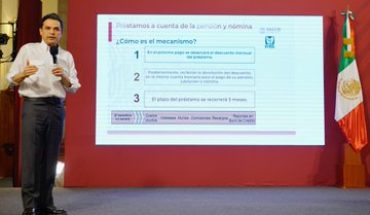There are multiple variables and causes that intersect to analyze the electoral result. I think it is necessary to address some undercurrents that have emerged in my opinion, which would be very decisive and which would allow, to some extent, to explain the astonishment that the result has produced.
The first thing to note is that there is a significant mismatch between politics and society.. There is not only a delay in the ways of doing politics but also in the way of thinking about politics. Static conceptions and traditional practices prevail about what politics can do. Some analysts have resorted as an explanatory variable to the classic division between right and left. However, in this context, what response is there so that two governments of Piñera and Bachelet have been generated in the last 16 years. Is President Piñera’s vote only a right-wing vote? It is clear that this cannot be stated categorically, because there is a very important fluidity in the electorate, in the citizens This is expressed in a crisis of representation of the political party system. I will refer to four important factors in trying to explain this crisis of politics and the representativeness of political parties.
1) Political parties regardless of their position, or their ideological sign, fail to get a proper idea of the new role of politics, of its limits and possibilities. It seems that they are not in a position to accept the new realities, to discern the feasible objectives, to express the aspirations of vast social sectors that do not feel represented by the political party system. Citizens often make ideas and expectations about politics that do not correspond to the new social reality.
There is a need and aspiration for structural changes in society. The social explosion of October 19, 2019 shows this. However, it should be noted that it is necessary to take into account that in a process of social change, the new never completely replaces the old. Even in revolutions there is no clean slate of the past. It is important therefore to consider that traditional patterns of domination of the past that are still present in the form of structures such as caciquismo, clientelism, in the styles of government, populism, individualism and the absence of common values always persist. Along with this, there is also a lack of “common sense” between daily life, the daily and the real functioning of political institutions Institutions and processes are often required to function ideally without giving them the necessary time to consolidate and adjust to social changes. Political parties do not fully account for this reality.
2) In Chile there is a new social complexity. For several decades there has been a process of social differentiation that complicates the social structure. The fundamental social classes that in the past brought together the population in large collective identities, differ today in multiple social groups with specific subcultures. The multiplication of more and more autonomous spaces generates a segmentation of material interests, and diminishes the importance of the universal principles that served as an anchor to collective identities. To the extent that this social differentiation gives rise to a process of disintegration and atomization, collective identities dissolve or simply drift into cohesive groups more by shared emotions than by lasting bonds. This happens, for example, in the climate that is generated in football matches or the identities that are generated in rock recitals. In other words, social actors multiply at the same time as they weaken. This affects the form of political representation of the social interests that political parties claim to represent. Representativeness presupposes that there are representable actors. A gap has been generated between the political representatives of the political parties and those represented, affecting in a very decisive way the profile of the parties.
3) Functional differentiation. Another factor affecting politics and the party system concerns what has been called “functional differentiation”. That is, various fields and functions espSociety’s economies have been developing their own rationalities in accordance with their functions to constitute true autonomous functional subsystems. Expression of this is the relative independence or impermeability shown for example by the economy, politics, social organizations, each of which acts according to its own logics and accepts the logic of the other subsystem to the extent that they coincide with their own. It is difficult for this society to exist a “unity” of social life that presupposes hierarchical command. Politics in this context loses its centrality. It ceases to be that central and exclusive nucleus from which the whole of society is ordered. Previously, political coordination in society was centralized. Currently, the State is not the only guiding nucleus, at the apex of the social pyramid, from which all decisions are ordered. This affects the political party system very decisively. It requires thinking about new ways and tasks for parties. They must abandon their self-referential tendency, often alien to the interests and concerns of society. They must position themselves as vindicators of civil society at the state level. They must be promoters of a living, controversial society that does not accept anonymity but without trying to subsume or instrumentalize the functional diversity and autonomy of today’s society, in which politics is only one of its spheres. This means improving the quality of politics and political leaders. If we want a citizens’ democracy, it will depend much more on quality. It will also require the recognition of organizational movements, however partial and specific they may be of civil society itself, beyond the party system and classical social structures. It is from this diversity that it will be possible to build a new sense of community.
4) Resizing of time and space. There is a much greater link between the internal and the external. The vast majority of relevant problems cannot be solved within national borders. This happens, for example, with the problems of drug trafficking, violence, the use of natural resources, migration, to which are added the economic turbulences, etc. This makes national borders porous, calling into question the current space of politics and parties that were linked, and constrained in their action, to the national framework.
On the other hand, there is a resizing of time. There is an acceleration of time. Previously learned experiences soon cease to be useful. This reduction in useful time also affects politics and parties, since they cannot fully draw on the historical background of accumulated experiences to face the challenges of the present. Along with this obsolescence of the past we notice a fading of the future. The times of politics are different from those of the market. They imply governance, management of the conjuncture and at the same time projection and future sense. The times of the market characterized by the speed and voracity of consumption tend to transform everything into the present. In earlier times the acceleration of time was domesticated and controlled by the notion of progressive future that was given by the ideas of technical progress for human emancipation. The future represented a horizon of meaning in the name of which the present was interpreted. Politics had in part this sense. This directly affects the conception of politics understood as a deliberate construction of the future. Locked in the immediate, politics lacks the capacity for anticipation and therefore finds it difficult to defer costs and rewards to the future. Consequently all demands and expectations are turned into the present, seeking satisfaction here and now. People demand that their problems be resolved here now and as quickly as possible. This places enormous challenges regarding the effectiveness of problem-solving by democracy, which if it is not able to respond to demands effectively and quickly, increasingly loses effectiveness and eventually even legitimacy. There is no doubt that this is affecting politics and political parties. The effectiveness and capacity of them will depend on the ability they have to really build future horizons.
Follow us on
The content expressed in this opinion column is the sole responsibility of its author, and does not necessarily reflect the editorial line or position of El Mostrador.





